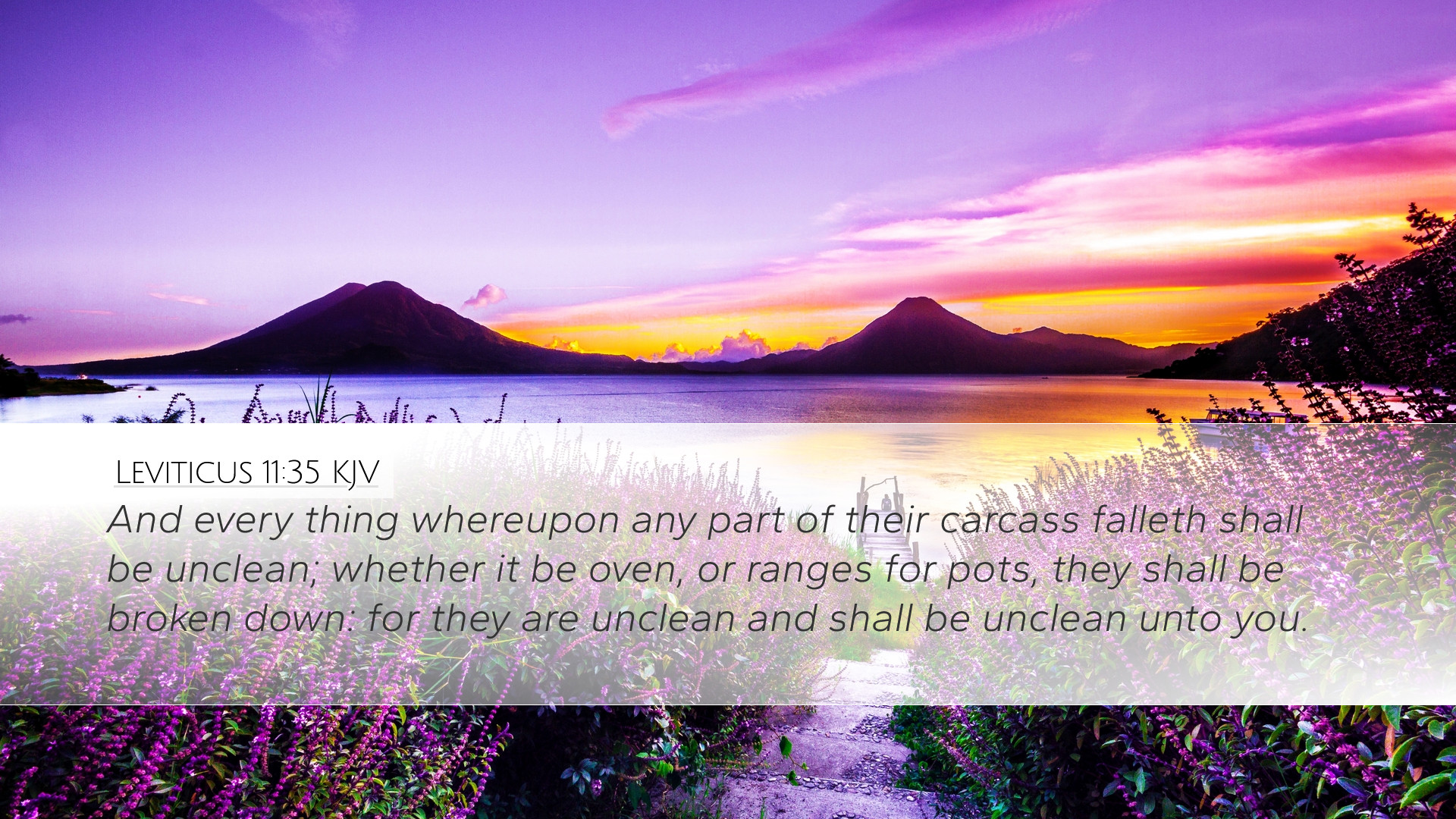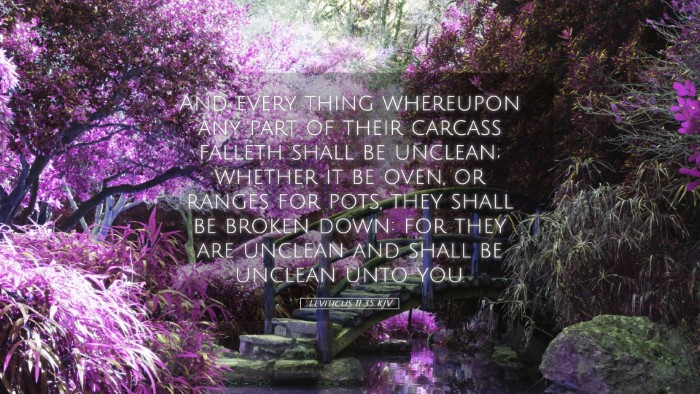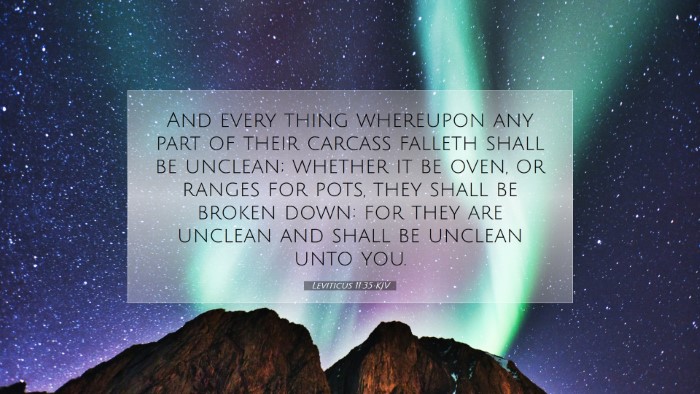Commentary on Leviticus 11:35
Verse Context: Leviticus 11:35 states, "And everything whereupon any part of their carcass falleth shall be unclean; whether it be any vessel of wood, or raiment, or skin, or sack, every vessel of earth, wherein to any unclean thing shall be put, shall be unclean, and ye shall break it."
Introduction
This verse falls within the broader context of the dietary laws and regulations concerning clean and unclean animals as outlined in Leviticus. The holiness code provided by God to Moses serves both ritualistic and ethical purposes, setting apart the people of Israel for divine service. Such detailed regulations not only kept the people physically distinct from surrounding nations but also reinforced spiritual purity and community identity.
Spiritual Significance
Symbolism of Clean and Unclean: The distinction between clean and unclean is a recurring theme in the Old Testament, reflecting God’s character. Being unclean symbolizes separation from God, while being clean signifies acceptance and proximity to divine holiness. Matthew Henry remarks that these laws underscore God's desire for His people to be holy as He is holy (see Leviticus 11:44).
Detailed Observations
This specific verse broadens the scope of uncleanness beyond merely the carcasses of animals to include any item that comes into contact with them. The commentary of Albert Barnes emphasizes that any vessel, whether made of wood, leather, or earth, that touches a carcass of an unclean animal becomes inherently unclean. This illustrates the pervasive nature of sin and impurity; it can infect not only individuals but also the objects they interact with.
Practical Implications for the Israelites
The Israelites were to live by the rules handed down, recognizing that spiritual cleanliness affected their community and interactions. Adam Clarke describes these regulations as a protective mechanism to help maintain the people's sanctity in daily life. There is an implicit call to holiness in all aspects of their existence, affecting both the sacred and the mundane.
Ritual Purity
- Household Conduct: This regulation informs household practices; it denotes the importance of purity in domestic life.
- Community Awareness: The laws encourage awareness among the community to promote a culture of holiness.
Theological Reflections
Understanding these laws encourages believers today to consider the types of influences that lead to spiritual uncleanness. Just as physical interactions with unclean items rendered vessels unusable for normal ritual functions, so too do spiritual impurities disrupt the communion with God.
Typology and Fulfillment in Christ
Early theologians point to Jesus as the ultimate fulfillment of the Law. In the New Testament, believers are reminded that through Christ, who declares all foods clean (see Mark 7:19), the spiritual realities of cleanliness are transformed. Clarke emphasizes that believers need not adhere to these ancient practices for cleanliness but are called to pursue spiritual purity through Christ’s redemptive work.
Conclusion
Leviticus 11:35 offers profound insights into the nature of holiness, the seriousness of spiritual and ceremonial cleanliness, and the implications of both on a communal and personal level. Through its examination, past and present believers are encouraged to live in a manner that reflects God's holiness, be vigilant against spiritual impurities, and understand the richness of their identity in Christ.
Final Thoughts
The laws in Leviticus may seem archaic, yet they serve as a mirror for the moral and ethical standards expected of God’s people today. As we reflect on such scripture, it invites an ongoing dialogue about the nature of God's holiness and our call to live differently in a world that often contradicts these divine principles.


